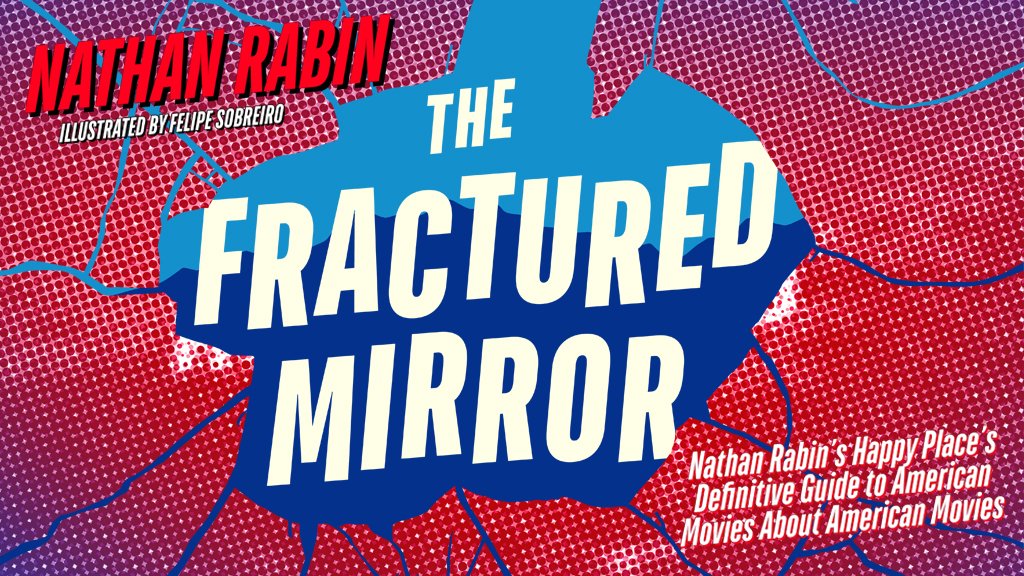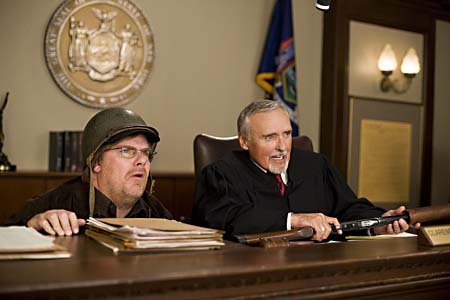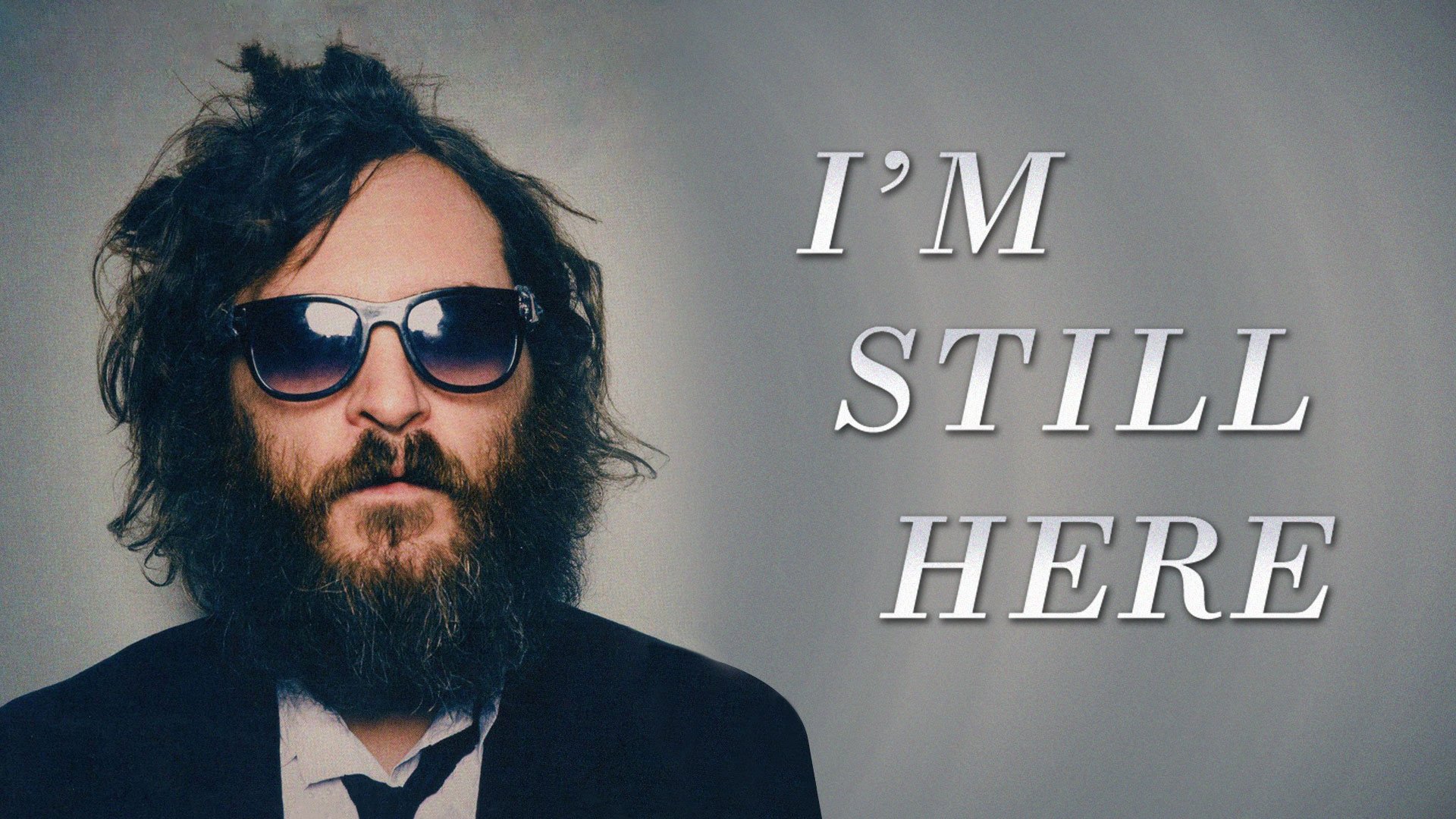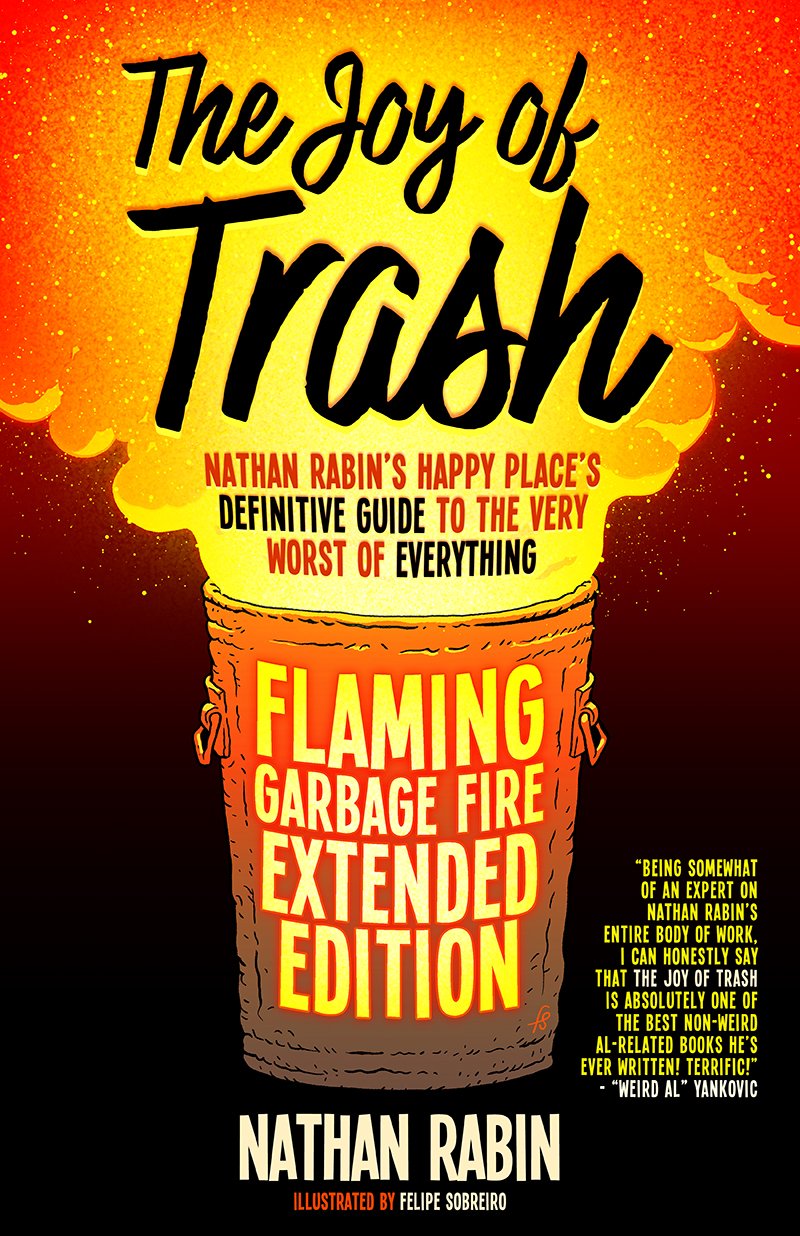In the Latest Round-Up of Blurbs from The Fractured Mirror I cover All That Jazz, An American Carol, I'm Still Here, Judy and May December
For much of the last two years, my time and energy has been devoted to researching and writing The Fractured Mirror, a massive exploration of the last hundred years of American films about making movies. I’m hoping to get it out early next year but it is a Herculean undertaking that, as of the moment, is a little over 650 pages long. Here’s the latest round-up of blurbs from a book you can preorder here while it’s still suspiciously cheap.
All That Jazz (1979) FM
Like a surprising number of filmmakers, Bob Fosse chose to create his own version of 8 1/2 despite the considerable disadvantage of not being Federico Fellini with 1979’s uncomfortably personal and intense All That Jazz. The dancer turned choreographer turned theatrical director turned filmmaker had the ambition and audacity to try to out-Fellini Fellini in terms of surrealistic, carnivalesque spectacle and raw sexuality. Unique among the wannabes, Fosse had the brilliance, drive and imagination to succeed.
All That Jazz is a rapturous song of self inspired by a particularly fraught period in its creator’s life when he was deep into post-production on Lenny while whipping Chicago into shape for a Broadway run. That’s a workload that would challenge the strongest, healthiest and most disciplined artist but Joe Gideon (Roy Scheider), the Fosse surrogate at the film’s core, is almost impressively unhealthy, compulsive and lacking in discipline.
Decades of hard drinking, heavy smoking, amphetamine abuse, overwork, womanizing and diligently avoiding anything that might resemble self-care have taken a toll on the charismatic anti-hero.
As the film progresses and Joe comes increasingly close to catching up with the death he has seemingly been chasing all his adult life the always slippery lines between reality and fantasy and art and life begin to disappear.
Scheider is haunted by death in the ethereal, inviting form of Jessica Lange as a comely angel of doom who flirts outrageously with the sex addict as he looks back at his life and contemplates death.
There is a glorious synchronicity in All That Jazz winning the Academy Award for Best Editing because All That Jazz is about editing in more ways than one. Fosse and editor Alan Heim, who also edited Lenny and has a cameo in the film as an editor, give the proceedings a lively staccato musicality, a brash rhythm all its own. It is a bravura exercise in cutting that makes full use of all of the tools of film, particularly in terms of editing.
All That Jazz is a movie about death positively roaring with life. It’s about a genius whose life was a mess and a masterpiece, a tragedy and a triumph. It maintains a mood of transcendent exhaustion from the first frame to the last but is paradoxically overflowing with energy, ideas and momentum.
An American Carol (2008)
David Zucker’s brutally unfunny 2008 comedy The American Carol does nothing to disprove the notion that conservative comedy is an oxymoron. It would be hard to imagine a worse starting place for satire than breathless earnestness and a deep, unthinking reverence for the American war machine, particularly the troops. Yet Zucker has nevertheless made a pro-war, pro-establishment comedy fueled by dour patriotism rather than a desire to make audiences laugh. An American Carol would never be disrespectful enough to make jokes about what it sees as the greatest nation in the history of the universe. That’s deadly for an ostensible comedy.
Kevin Farley stars as Michael Malone, a bloviating, perpetually eating caricature of Michael Moore. He’s an Oscar-winning director of anti-American documentaries slated to be the key speaker at a rally to ban the Fourth of July. In a dire twist on A Christmas Carol the buffoonish filmmaker is visited by three ghosts who teach the silly leftist that The United States is a faultless paradise and the rest of the world is filled with evil brown people who want to kill us. The lesser Farley brother is joined by pretty much every conservative in Hollywood, including Kevin Sorbo, Kelsey Grammer, Dennis Hopper, Robert Davi (in brownface as an Arab terrorist), Jon Voight and James Woods.
Zucker is the antithesis of an equal opportunity offender. The film witlessly depicts the left as evil monsters who hate America and the right as saints who bleed red, white and blue. Zucker has so much respect for conservatives that he doesn’t feel the need to sully their message with jokes or humor.
An American Carol isn’t even really a movie, just a series of Fox News talking points in quasi-cinematic form.
I’m Still Here (2010) FM
Heavyweight dramatic actor Joaquin Phoenix unexpectedly got way too in touch with his inner Andy Kaufman when he sabotaged his thriving film career by pretending to quit acting to become a rapper. Phoenix’s brother-in-law Casey Affleck chronicled the Oscar winning actor’s epic exercise in performance art for the controversial and creepy 2010 mockumentary I’m Still Here.
In a borderline psychotic exercise in self-immolation, Phoenix portrays himself as pretty much the worst person in the history of the universe. In a related development, he’s also the world’s worst rapper. I’m Still Here disproves the clearly false yet weirdly widespread belief that anyone can rap.
The film’s faux Phoenix is a crazed, feral monster, a bearded, disheveled, pot-bellied caricature of a narcissistic movie star in an eternal hunt for weed, cocaine, women and the extravagant perks of life at the top of the show-business ladder.
The thankfully fictionalized Phoenix ostensibly leaves Hollywood and acting behind so that he can be what he sees as his true, authentic, inexplicably Hip Hop self alongside Diddy, who he delusionally hopes will produce his rap debut. Yet Phoenix clearly has not left Hollywood behind, as many of his raps discuss the emptiness of fame in the most hilariously banal fashion imaginable.
Phoenix and Affleck push the comedy of awkwardness to excruciating extremes. They go too far and just keep going in their bleary pursuit of self-obliteration. The sometimes transcendently uncomfortable comedy peaks with a visit to Late Night with David Letterman, ostensibly to promote Phoenix’s “final” film, Two Lovers, that instantly became the stuff of legend.
In I’m Still Here Phoenix angrily rebels against our culture’s cult of likability, at the idea that we should be able to root for and identify with characters. He’s a villain and an anti-hero in fog of substance abuse who is forever punishing the people around him for his own rampant shortcomings. There’s never been a movie about movie stardom or celebrity culture quite like I’m Still Here. That’s probably for the best.
Judy (2019) FM
As is almost invariably the case, Renee Zellweger picked up an Academy Award for 2019’s Judy for Best Actress that doubles as an award for most acting. The role of a deeply scarred Judy Garland at the end of an achingly sad life proves the perfect showcase for the actress’ riveting combination of squirmy vulnerability and iron will. Zellweger’s masterful turn transcends imitation and impersonation. She doesn’t just look and sound almost disconcertingly like the icon she’s playing; she captures her ineffable essence as well.
Judy documents the final year of its subject’s life. She’s more or less unemployable and uninsurable in her home country and consequently cannot secure work, particularly in film. So she leaves her children behind to work in England, a country where her star shines much brighter.
It’s a new start in a new nation but she is plagued by her old demons and vices and pursued by Mickey Deans (Finn Wittrock) a slick opportunist who sees in the faded star a paycheck and nothing more.
The biopic is littered with flashbacks to its star’s ostensible glory days as the fresh-faced star of Wizard of Oz and a string of musicals with Mickey Rooney. Judy depicts child stardom as a particularly brutal form of child abuse because the outside world wasn’t just oblivious to her suffering; it envied what it mistakenly saw as a charmed life of fame and fortune.
Judy’s portrayal of the paternalistically evil Louis B. Mayer is particularly sharp and brutal. Richard Cordery plays the executive as a sociopath whose warm smile and fatherly persona masked a dark heart and a mind concerned only with money and perception. These harrowing scenes give insight into the formative trauma that haunted the actress. Zellweger delivers an appropriately epic, theatrical performance as a preeminent show business martyr who lived life in full color, with the volume cranked all the way up.
May December (2023) FM
The tawdry tale of Mary Kay LeTourneau, teacher, temptress and defiler of youth and innocence was tailor made for tabloid infamy. A scandalized public was titillated, disgusted and intrigued by LeTourneau’s transgressions but what really set her apart in the public imagination is that after going to jail multiple times for statutory rape she married Vili Fualaau, the child she molested, and stayed married to for fourteen years.
Todd Haynes’ riveting melodrama May December uses a fictionalized version of the LeTourneau/Fualaau scandal as a springboard to explore fame, infamy, abuse, power and the eternal question of who gets to tell the story and control the narrative.
Julianne Moore, Haynes’ radiant and eminently dependable muse, stars as Gracie Atherton-Yoo, the film’s LeTourneau figure. She has also spent considerable time in jail for what she sees as righteously consummating her blessed bond with her soulmate. It does not seem to matter to her that their relationship began with a crime.
A perfectly cast Natalie Portman plays Elizabeth Berry, an ambitious and calculating television actress who will be playing Gracie in an independent film that the controversy magnet hopes will change the public’s perception of her as a cradle-robbing criminal.
There are few surer bets than Julianne Moore in a Todd Haynes film. Moore delivers a volcanic performance filled with nuance and ambiguity. She’s matched by Portman’s fussy intensity and cerebral sensuality but the real standout is Riverdale alum Melton, who gives his character a sense of quiet acceptance and gentleness that is mistaken for contentment, even happiness.
May December treats explosive material with sensitivity and craft. The story may be pure tabloid but Haynes and his magnificent cast elevate it to the level of high art.
Pre-order The Fractured Mirror, my next book, a massive, 650 page exploration of the long and distinguished history of American movies about the film industry at https://the-fractured-mirror.backerkit.com/hosted_preorders
Help choose the movies I write about here by becoming a paid subscriber at https://nathanrabin.substack.com or by pledging the site’s Patreon page at https://www.patreon.com/nathanrabinshappyplace
Check out The Joy of Trash: Flaming Garbage Fire Extended Edition at https://www.nathanrabin.com/shop and get a free, signed "Weird Al” Yankovic-themed coloring book for free! Just 18.75, shipping and taxes included! Or, for just 25 dollars, you can get a hardcover “Joy of Positivity 3: Can’t Stop Won’t Stop” edition signed (by Felipe and myself) and numbered (to 50) copy with a hand-written recommendation from me within its pages. It’s truly a one-of-a-kind collectible!
I’ve also written multiple versions of my many books about “Weird Al” Yankovic that you can buy here: https://www.nathanrabin.com/shop
Or you can buy The Joy of Trash from Amazon at https://www.amazon.com/Joy-Trash-Nathan-Definitive-Everything/dp/B09NR9NTB4/ref=tmm_pap_swatch_0?_encoding=UTF8&qid=&sr= but why would you want to do that?














